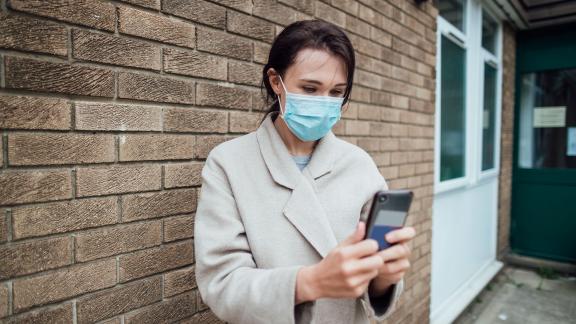Mental health services: too digital or not digital enough?

The NHS Confederation’s Mental Health Network commissioned Thrive by Design (mHabitat) to co-design a digital skills guide for the mental health workforce. The guide is co-designed to enable a digital journey for people involved in mental health services across sectors. It begins with a broad definition of digital and a set of principles which we hope will be adopted at a national and local level:
We hope this guide will act as a catalyst which encourages people, whole teams and organisations to make the most out of digital tools to improve services and the lives of people we are here to serve.
From the start, this piece of work was intended to be co-designed by the people for whom it was intended to benefit. Over 100 people directly contributed through surveys, co-design workshops, events and through a diverse reference group made up of people with living and learnt expertise, clinical, senior decision-makers and cross sector representation.
The co-designed problem statement we were working towards resolving was: ‘Staff need to feel confident that digital will act as a catalyst and enable better care’. There were three key parts to this: understanding what digital means and how it makes things better; recognising there are a range of soft and product specific skills; and ensuring choice.
Context is everything
One of the findings of our discovery was the idea that for some people, (mental health) services were too digital and for others they weren’t digital enough. What this tells us is that context is everything. Every person, organisation and area will have a different context, and on top of that, digital itself is rapidly changing.
The finished product equally supports people who are at the beginning of their digital journey all the way to the person that others come to for help
This finding came out strongly throughout the project, so we were keen to produce something that wasn’t static or prescriptive, but was adaptive and customisable to the context of the people seeking to use it. The finished product equally supports people who are at the beginning of their digital journey, i.e. ‘curious but not sure how to get started’ all the way to ‘the person that others come to for help’.
Bad PR
Connected to this finding, we discovered that on the ground digital sometimes suffers from bad PR often caused by issues such as the kit not working, poorly designed and implemented systems and tools, and lack of time to learn new skills and processes.
Digital exclusion/inclusion using the NHS Digital definition covering skills, connectivity and accessibility is also a challenge affecting both staff and people who use services. In some cases digital systems and tools have been implemented with no training, compounding an already difficult situation.
"Unfortunately there has been no training, everyone has had to learn on their own. No digital support at all, which has added to anxieties within my team and service wide."
Wide applicability
The survey results highlighted nurses and administration as priority roles and community services for adults with severe mental health illness, mental health crisis services and services for older people as key areas where development was needed. Rather than focus on any one area, and in line with the wider findings, we created a tool that could be applied in any of these services and roles.
We followed the content preferences expressed in the surveys and interviews, including enabling peer-to-peer support, self-assessment, case studies and signposting.
"Learning alongside others with a similar skill-set is helpful."
The grit in the oyster
We also learnt from a literature review and surveys with service leads and frontline staff that digital has the potential to be the grit in the oyster, transforming not only the way we deliver services but the relationship between people who deliver and use services so we placed ‘co-production’ as a key factor in developing digital skills in mental health.
Digital is a culture, a way of thinking. Accepting and participating in change is as important as knowing how to use a specific product
Above all we learnt that digital is a culture, a way of thinking. Accepting and participating in change is as important as knowing how to use a specific product. We had some suggestions around ensuring digital skills are incorporated into professional training, strong and clear leadership when new digital tools are being embedded into services and "the need to create a narrative as compelling as the pandemic."
Digital can enable better (and broader) transformation. If participation in transformation is culturally accepted then it can potentially improve and democratise health care. A win-win for quality, efficiency and most importantly for people both delivering and receiving services.
So if you have a top tip please do share on the embedded form or tweet on #MHDigiTips tagging in @NHSConfed_MHN and do let us know if you use the guide to help you and your team develop the digital skills you need to deliver mental health services.
We would like to thank Alex Stewart and Emma Paveley who commissioned this work and the members of the reference group for their generous and insightful contributions: Dr James Woollard, Phil Hough, Dr Ayesha Rahim, Henrietta Mbeah-Bankas, Sue Sibbald, Dr Anish Nrk, Matt Butler, Dr Girish Vaidya, Duncan Tree and Jane Padmore.
Roz Davies is managing director of MHabitat. Follow her and the organisation on Twitter @roz_davies @wearemhabitat



